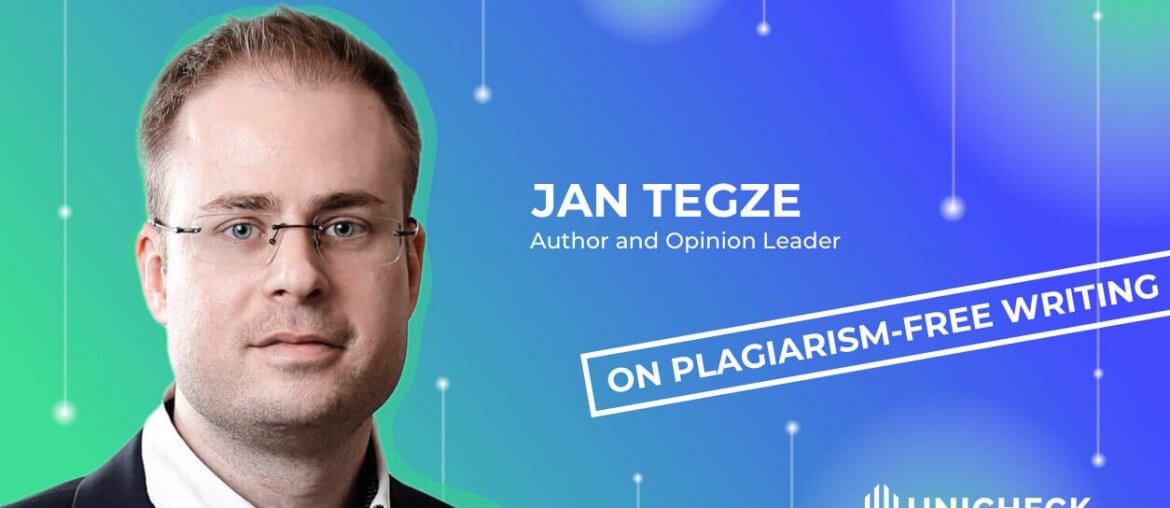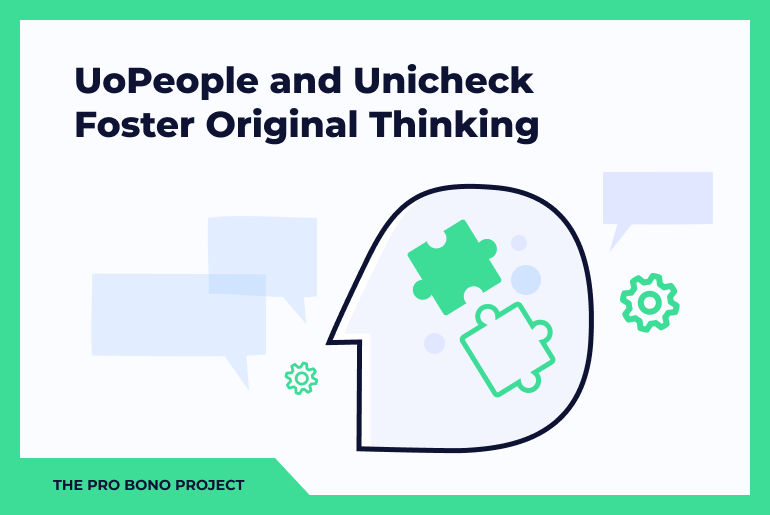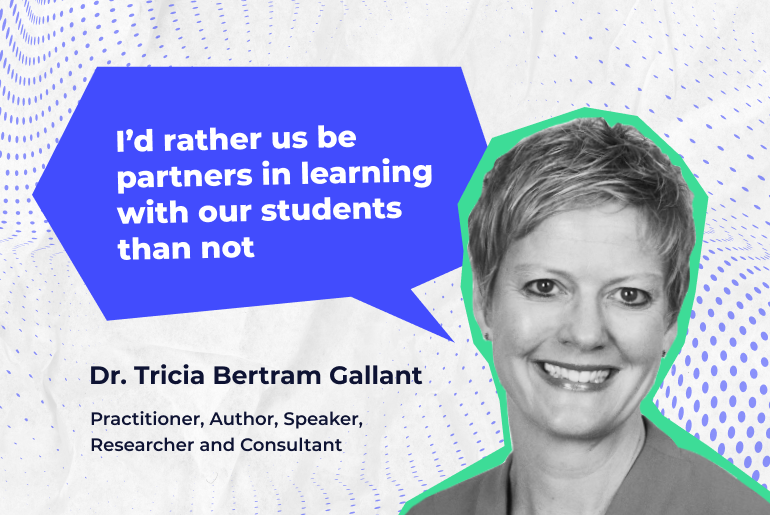The days of Googling text line by line in order to find a source and properly give credit are long gone. It takes too much time and is not effective. Posting an article that contains uncited material is an invitation to plagiarism, which can lead to an author losing credibility, or worse, being subject to legal action.
This is why we’ve contacted our long-term client and friend, Jan Tegze, a thought leader in the field of talent acquisition and the author of “Full Stack Recruiter”, to share the struggles of a digital-age writer and his experience of utilizing Unicheck for ensuring the authenticity of his articles and books.
Unicheck: Please, tell our readers about yourself. What are you working on at the moment?
Jan: I am a sourcer/recruiter, blogger, keynote speaker, author of a few books (Full Stack Recruiter), and results-oriented Talent Acquisition Leader with extensive experience in full life cycle recruiting and broad knowledge of international recruiting, sourcing, and proactive innovative sourcing techniques.
Unicheck: You are an expert in recruitment. What made you decide to share your knowledge in your books and blog?
Jan: I wouldn’t describe myself as an expert because I am still learning new things every day, and I have lots of things that I need to learn before I am going to become one. The main reason why I started writing articles and sharing the knowledge with others was that I wanted to show others that there could be different ways of approaching candidates, that giving feedback to candidates is not optional, that recruitment and sourcing is an amazing field, and that when facing some problems, you have an amazing community of people that are willing to help you.
Writing my blog turned into a few books already because I wanted to write a book that I wish I had when I started, a book that shows me the tricks on how to find candidates and how to approach them. The Dalai Lama once said, “Share your knowledge. It’s a way to achieve immortality”, and I think he is right with that statement. Plus, I believe that you will find more success to pull others up, so why to keep all knowledge for yourself? Great things are achieved only through sharing.
Unicheck: In your opinion, with the rapid development of Internet technologies, has the life of an author has become easier or more complicated?
Jan: It’s easier because we have many interesting tools that improve our writing, check our grammar, and help us with checking whether the material was cited correctly.
We all have a huge amount of information at our disposal, that we can use as a source when writing articles and books. Tools are also helping us find the primary source if we are planning to add some citations to the article. Or we can double-check if the information shared by the author is correct and based on real data or a study.
You have probably seen lots of articles with the title “Your Resume Only Has Six Seconds to Make the Right Impression” or any other variants of those “six seconds for your resume” ideas. Those articles refer to other articles with the same topic as a source, and very often, they don’t mention the primary source. I took some time to find the primary source and was amazed to discover that this concept comes from the flyer of one company offering resume writing services. But others take that information as a fact, without even questioning if that data is correct and now many people continue to believe that it’s true.
That’s why I am grateful to Unicheck because I can get to find the primary sources of data faster.
Unicheck: Have you been in a situation when your works were plagiarised? In what way? Can you share some examples?
Jan: Every year, I find around eight of my articles stolen and used without my permission. I have even found my articles translated and shared by those “authors” as their original work. What surprised me the most was that not only individual writers but also companies and staffing agencies are doing that. The owner of one recruitment agency from the UK even threatened that they would take legal action against me if I shared that publicly, which I– by the way–already did. Other plagiarists are often using threats, and some of them are not even sorry. I usually go check their whole blog to see how many other articles they copied from other authors, and sometimes I find dozens of other articles shared without permission.
Unicheck: Please describe the risks that an author might experience if he or she does not make a self-check for plagiarism.
Jan: I have two reasons why I started using plagiarism detection software like Unicheck. The first one was that when you are writing articles and are using lots of sources for it, you can easily overlook adding a citation. This can lead to accusations of plagiarism and for me, it’s absolutely unacceptable. This small thing can make your readers question your competency. We all make mistakes, but thanks to tools like Unicheck, I can limit those mistakes and add the source to the paragraph that I use from some study. And it’s especially handy when you spend days or weeks writing an article, so you don’t lose track of all the sources you used in there.
Unicheck: How long have you been using Unicheck? Why did you choose this tool?
Jan: I started using Unicheck in 2017. I was finishing my first book, and I just wanted to make sure that I didn’t forget to add a source and that I wasn’t using any text without permission. And by the way, I tested many plagiarism tools through a number of tests, and the quality of Unicheck was far better than the other tools. But in all fairness, I still use a few more tools from time to time to check if my article or book is original, but Unicheck has always given the best results.
Unicheck: Do you think there is a way to stop plagiarism completely? What could it be?
Jan: Honestly, I don’t think it will ever be possible, because people like to share the content of others. It’s easy. As an author, I am not happy that my work is shared without my permission, especially when I spent days putting together all of my thoughts and experiences. So, the only thing I can do is to detect it and not let the people who stole my articles think that this is okay.
Interested to learn more about plagiarism detection opportunities that Unichek provides? Check out the product’s features here.





